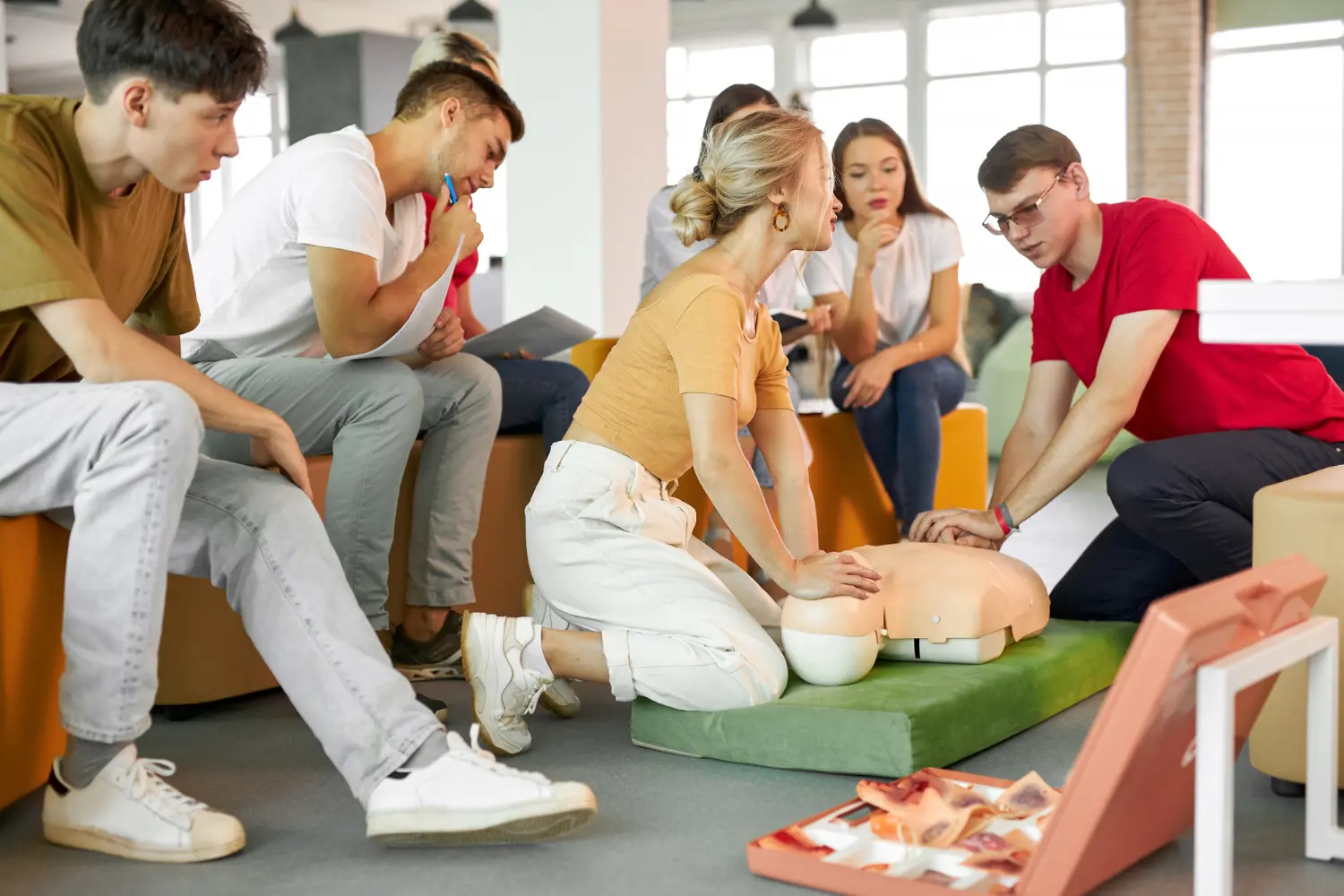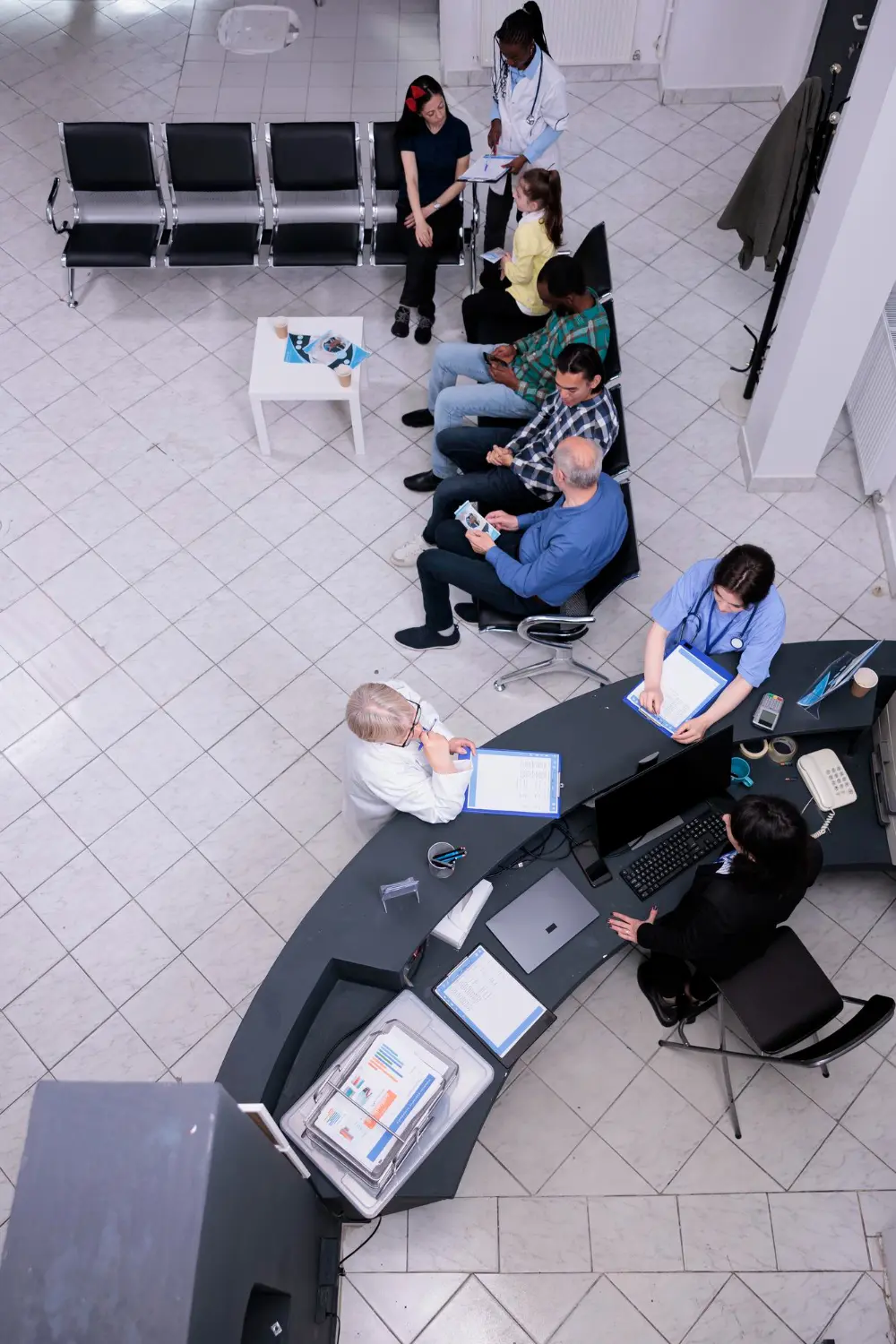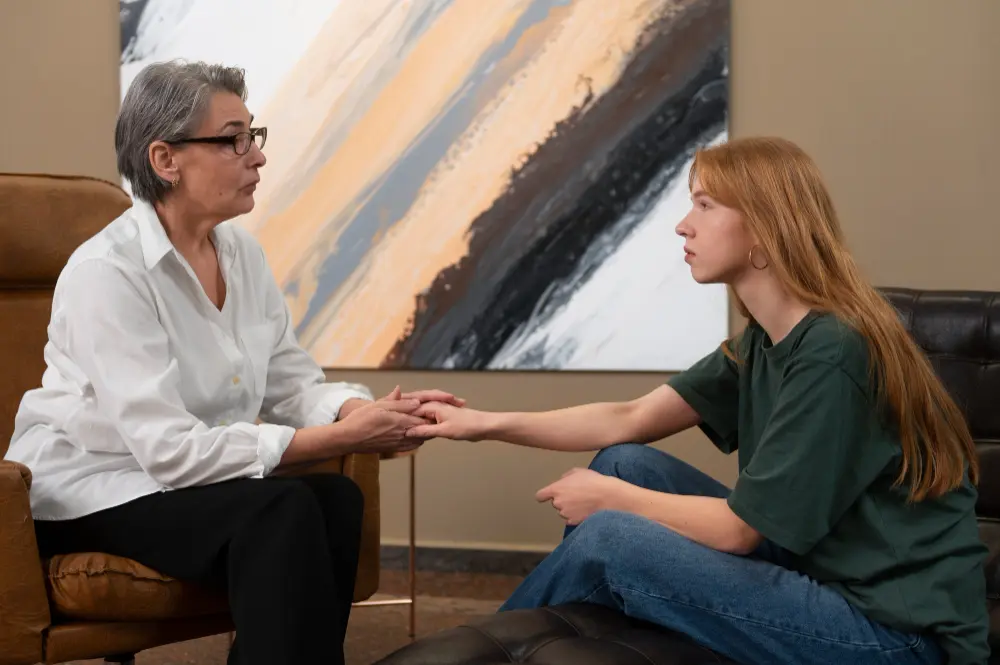Home » 2016 Presentations
ATTCH receives a lot of requests for training in other areas. This is something that we do regularly! Custom training options or trauma certification trainings are available in your area for groups of all sizes. There is no minimum or maximum number of participants. Trainings are customized according to the group we are presenting to. We offer trainings in becoming trauma-informed learning how to implement trauma-specific treatment our Integrative Trauma and Attachment Treatment Model (ITATM) ®, and a wide variety of custom options (samples included below). This often works out to be an economic option as participants save on travel and accommodation costs. Contact reception@attch.org to request a proposal details.
Customized within the context of First Responders
Keynote Address PTSD & Vicarious Trauma Symposium, hosted by the Canadian Mental Health Association (CMHA) Brant
Customized within the context of Indigenous Communities
Conference Speaker: Understanding and Grounding Trauma and Addictions in Indigenous Communities
Sault Ste. Marie, ON (October 25, 2016)
Web link: http://ontarionnadap.org/wp-content/uploads/2016/08/2016-NNADAP-Conference-Package-NNADAP-Workers.pdf
Conference Speaker: Attachment, Trauma, and Integration: Sensory Regulation to Integrate and Calm The Brain, Mind, and Body
Toronto, ON (September 24, 2016)
Web link: www.oaccpp.ca/pd-and-events/annual-conference-agm/
3-Day Custom Training for front-line workers
Custom Training for Partner Assault Response (PAR) Program Facilitators
Please find attached information regarding an upcoming evidence-based trauma intervention training hosted by Community Living Port Colborne. Presentations will provide insight around trauma symptoms and differential diagnosis (such as grief, ADHD, and oppositional behaviours) as well as insight into SAMHSA approved evidence based training in structured sensory intervention. Learn about the impact that trauma has on our brain, body, and behaviours inclusive of impact on implicit and explicit memory. Learn why cognitive-based interventions can be limited in their effectiveness for trauma intervention and how to implement trauma informed services within your organization.
Please note: although the workshop is called Children in Trauma, it applies to all ages, a foundational understanding of how trauma impacts allows clinicians working with adults to understand why behaviours, symptoms, experiences etc happen the way they do. Trauma often occurs in childhood and this workshop will inform professionals about the impact this trauma experience(s) can have on future behavior, emotions, as well as psychological, physiological, and neurological functioning. I have used the children’s programs for a few years now with great success with ages 2 – 17. I have also had marked success in using the Adults in Trauma Program over the past 1.5 years with individuals experiencing PTSD as a result of various trauma experiences (war, abuse, attachment, car accidents, domestic violence etc.).
This is an excellent training opportunity for anyone working in a helping capacity with any age group and it is the first time this has been offered locally. If you have any questions, please contact me directly. To register complete the attached information and forward to Community Living.

We are pleased to announce that the Critical Incident Foundation will be hosting the 2014 Critical Incident Stress Conference April 24th to the 26th at the Sheraton on the falls in Niagara Falls, Ontario . We are also excited to announce we will be offering ICISF approved courses in the ICISF model: Individual, Group, and Suicide April 22nd and 23rd.
This conference will unite hundreds of people from across Canada and Internationally with the common interest in the field of CISM. The CCISF is further pleased to announce that the International Critical Incident Responders Network(ICIRN) biennial Conference will be held April 22nd and 23rd during this unforgettable week long event .
Lori will be presenting on Thursday afternoon on suicide prevention, intervention, and postvention.

Lori is thrilled to be presenting again at this year’s TLC’s summer assembly. This year she will be presenting on the Secret World of Substance Abuse
What do items such as aerosol cans, tootsie-rolls, candy necklaces, plastic bags, cotton balls, and hair “scrunchies” have in common? How would you respond to the following from a youth, “Have you ever used drugs?” or “Wow that was a great party everyone was so wasted.” By the end of this presentation you will be familiar with drug culture current trends, youth perspectives and how to help them find a new normal away from substance abuse. Participants will also learn the impact that trauma and attachment have on addiction behaviours and how to regulate and replace harmful behaviours with healthier alternatives.
The conference is held in Michigan and is an enriching professional development and networking opportunity.
Lori will be presenting at the first CYC World Conference in Newfoundland. As she started her career studying in the Child and Youth Worker Program she is quite excited to be a part of this conference.
Lori will be presenting two workshops:
This presentation will focus on trauma’s impact on the brain and therefore learning and behavior as well as the importance of using structured sensory interventions with traumatized youth. This presentation will highlight evidence-based research that showed statistically significant remarkable reductions across all mental health and trauma related subscales in youth that were provided with structured sensory interventions. This presentation will be clinical, theoretical and researched based.
At the end of this workshop, participants will be able to:
This workshop will provide insight into the foundational aspects of trauma and attachment and how they shape behaviour, perception, and relationships. Additionally the impact on at risk behaviours will be explored including evidence-informed approaches most appropriate for addressing delinquent and risk taking behaviours.
This presentation will discuss:
This workshop will provide an introduction to the foundations of trauma and attachment as they shape behaviour, perception, and relationships throughout the lifespan. Strategies for creating a trauma-informed school setting and an introduction to sensory intervention and research around the efficacy of this approach will also be provided.
Participants will gain an introductory understanding of:
This 2 hour workshop will be offered on:
Wednesday May 22 from 8:00 a.m. – 10:00 a.m
Monday June 03 from 3:00 p.m. – 5:00 p.m
All ATTCH trainings are based on current research by leading experts in trauma and attachment and include best-practice and evidence-based techniques and approaches.
This workshop will provide an introduction to the foundations of trauma and attachment as they shape behaviour, perception, and relationships throughout the lifespan. An introduction to sensory intervention and research around the efficacy of this approach will also be provided.
Participants will gain an introductory understanding of:
This 2 hour workshop will be offered on:
Saturday May 18 from 10:00 a.m. – 12:00 p.m
Wednesday May 29 from 5:00 p.m. – 7:00 p.m
Tuesday June 4 from 11:00 a.m. – 1:00 p.m
All ATTCH trainings are based on current research by leading experts in trauma and attachment and include best-practice and evidence-based techniques and approaches.
Lori will be presenting on compassion fatigue at the Suicide Prevention Conference in Orillia – Surviving to Thriving on April 17, 2013. Visit the link provided to register.
Workshop Presenter: Healing the Helper – Compassion Fatigue and Vicarious Trauma Prevention,Working in a helping profession can be a very rewarding, yet it is also one that can be emotionally and physically draining. Preventing Compassion Fatigue: Self-Care for Helpers will focus on raising awareness about compassion fatigue and its symptoms as well as prevention techniques through professional and personal self-care. This workshop will review signs and symptoms of compassion fatigue along with prevention and self-care strategies. Unique issues will also be discussed inclusive of working with vulnerable sectors, at risk youth, and hard to serve populations.
Founded in 1990 by Dr. William Steele, TLC, a member of the Starr Global Learning Network, offers professionals trauma-informed training, support, consultation, online learning opportunities, certifications and trauma intervention programs and tools in trauma intervention programs, tools and techniques for working with children and families. TLC has trained over 50,000 professionals, including 6,000 TLC certified trauma and loss specialists working with communities around the world. Certified TLC specialists have been on the ground following some of the world’s most devastating tragedies, including the bombing of the Federal Building in Oklahoma City in 1995, the terrorist attacks in New York and Washington D.C., on Sept. 11, 2001, and the 2005 Tsunami in Southeast Asia. For more information on TLC, please visit www.starrtraining.org/tlc.
Lori Gill is a Certified Trauma Specialist and Trainer through the National Institute for Trauma and Loss in Children. She facilitates Level 1 Trauma Intervention Training, leading to certification as a Trauma Specialist through continued training.
Learn trauma-specific intervention tasks and techniques as well as see them demonstrated. This is a practice day. The presenter engages attendees in an encapsulated demonstration of the major sensory structured processes. Attendees will also participate in additional activities and, by days end, will feel comfortable using any of the TLC intervention programs. A brief presentation of the TLC evidence-based research and outcome will support the value of TLC’s structured sensory programs in schools and agencies.
Presentations will provide insight around trauma symptoms and differential diagnosis (such as grief, ADHD, and oppositional behaviours) as well as insight into SAMHSA approved evidence based training in structured sensory intervention. Learn about the impact that trauma has on our brain, body, and behaviours inclusive of impact on implicit and explicit memory. Learn why cognitive-based interventions can be limited in their effectiveness for trauma intervention and how to implement trauma informed services within your organization.
* Please note: although the workshop is called Children in Trauma, it applies to all ages, a foundational understanding of how trauma impacts allows clinicians working with adults to understand why behaviours, symptoms, experiences etc happen the way they do. Trauma often occurs in childhood and this workshop will inform professionals about the impact this trauma experience(s) can have on future behavior, emotions, as well as psychological, physiological, and neurological functioning. I have used the children’s programs for a few years now with great success with ages 2 – 17. I have also had marked success in using the Adults in Trauma Program over the past 1.5 years with individuals experiencing PTSD as a result of various trauma experiences (war, abuse, attachment, car accidents, domestic violence etc.).
After attending the Children of Trauma and Structured Sensory Interventions trainings, participants can achieve TLC Certification by completing:
Most people with thoughts of suicide invite help. Often these opportunities are missed, dismissed or avoided—leaving people more alone and at greater risk. safeTALK training prepares you to help by using TALK (Tell, Ask, Listen and KeepSafe) to identify and engage people with thoughts of suicide and to connect them with further help and care.
safeTALK is for everyone who wants to help prevent suicide: front line workers, clergy, volunteers, parents, youth*, teachers, law enforcement,… anyone who wants to be a suicide alert helper. *safeTALK is for anyone age 15 and older. Younger persons may attend with the consent of parents or guardian.How does safeTALK help prevent suicide?
Workshop Presenter: Healing the Helper – Compassion Fatigue and Vicarious Trauma Prevention,Working in a helping profession can be a very rewarding, yet it is also one that can be emotionally and physically draining. Preventing Compassion Fatigue: Self-Care for Helpers will focus on raising awareness about compassion fatigue and its symptoms as well as prevention techniques through professional and personal self-care. This workshop will review signs and symptoms of compassion fatigue along with prevention and self-care strategies. Unique issues will also be discussed inclusive of working with vulnerable sectors, at risk youth, and hard to serve populations.
You will learn:
Distress Centres Ontario (DCO), in partnership with local Ontario Suicide Prevention Coalitions and the Canadian Association for Suicide Prevention (CASP), are pleased to invite you to the Canadian national conference on the prevention of suicide, CASP/ACPS 2012: STEPPING OUT OF THE DARKNESS, in Niagara Falls, Ontario, October 15 – 17th, 2012.
Registration and details available at: http://casp2012.ca/
Lori will be presenting Healing the Helper – Compassion Fatigue and Vicarious Trauma
Workshop Presenter: Healing the Helper – Compassion Fatigue and Vicarious Trauma Prevention,Working in a helping profession can be a very rewarding, yet it is also one that can be emotionally and physically draining. Preventing Compassion Fatigue: Self-Care for Helpers will focus on raising awareness about compassion fatigue and its symptoms as well as prevention techniques through professional and personal self-care. This workshop will review signs and symptoms of compassion fatigue along with prevention and self-care strategies. Unique issues will also be discussed inclusive of working with vulnerable sectors, at risk youth, and hard to serve populations.
You will learn:
The Critical Incident Stress Foundation (CCISF) will be holding a conference in Niagara Falls from September 18 – 21, 2012. This is a National conference bringing together professionals with an interest in critical incident stress management. To learn more or register visit:
http://www.ccisf.info/CCISF-2012-Conference.html
Lori will be presenting as a keynote Speaker: Healing the Helper – Preventing Compassion Fatigue and Vicarious Trauma
Working in a helping profession can be a very rewarding, yet it is also one that can be emotionally and physically draining. Preventing Compassion Fatigue: Self-Care for Helpers will focus on raising awareness about compassion fatigue and its symptoms as well as prevention techniques through professional and personal self-care. This workshop will review signs and symptoms of compassion fatigue along with prevention and self-care strategies. Unique issues will also be discussed inclusive of working with vulnerable sectors, at risk youth, and hard to serve populations.
You will learn:
Workshop Presenter: Healing the Helper – Compassion Fatigue and Vicarious Trauma Prevention,Working in a helping profession can be a very rewarding, yet it is also one that can be emotionally and physically draining. Preventing Compassion Fatigue: Self-Care for Helpers will focus on raising awareness about compassion fatigue and its symptoms as well as prevention techniques through professional and personal self-care. This workshop will review signs and symptoms of compassion fatigue along with prevention and self-care strategies. Unique issues will also be discussed inclusive of working with vulnerable sectors, at risk youth, and hard to serve populations.
You will learn:
Workshop Presenter: Healing the Helper – Compassion Fatigue and Vicarious Trauma Prevention,Working in a helping profession can be a very rewarding, yet it is also one that can be emotionally and physically draining. Preventing Compassion Fatigue: Self-Care for Helpers will focus on raising awareness about compassion fatigue and its symptoms as well as prevention techniques through professional and personal self-care. This workshop will review signs and symptoms of compassion fatigue along with prevention and self-care strategies. Unique issues will also be discussed inclusive of working with vulnerable sectors, at risk youth, and hard to serve populations.
You will learn:
Some of the more commonly offered trainings are noted below however we welcome the opportunity to create a training unique to your organization or community’s needs.
